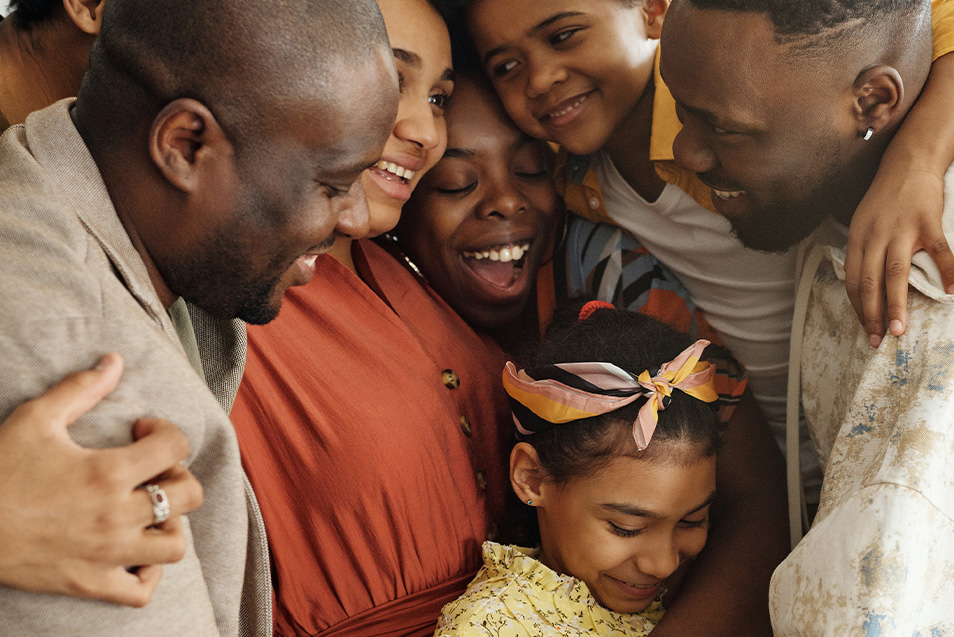While being able to provide funding to support children’s mental health is our primary focus at the Children’s Services Fund, the real heroes are the counselors and specialists at our partner organizations. They’re in the field working with young children, youth and their families day to day, helping to educate, lead, inspire and develop relationships and skills for lasting change in these kids’ lives.
We support organizations of all sizes and with various types of programs. While every one aligns with at least one of our ten service categories, there are some filling unique gaps in unique ways in regards to mental health and social-emotional support for Jackson County children.
Supporting Children Impacted by Cancer
Gilda’s Club specializes in psycho-social support for children and their families affected by a cancer impact. Their motto? “Seize the Day: Live well with and through a cancer diagnosis.” With goals to educate families about their diagnosis, empower them to manage their care, and communicate in healthy ways at every stage of the process, funding from the CSF helps Gilda’s Club provide a well-rounded community of support to children through four programs.
- Kid Support is a 10 week curriculum for kids and their families. This program’s expressive art component helps children open up about their thoughts and concerns regarding a family member’s diagnosis, such as loss of hair, excessive rest and sleep, or even thoughts that they may have caused the cancer themselves. This safe space offers a starting place to communicate, learn, and develop healthy social-emotional skills in the process.
- Kids Connect is a support group system for those with children while managing a cancer diagnosis. Adults can meet once a month and get the help and resources they need to communicate with their children appropriately.
- Family Counseling is group counseling where families learn how to identify and manage emotions and have healthy family conversations.
- Individual Counseling is for children, teens and young adults to receive one on one support that can help them navigate cancer’s impact on their thoughts and emotions, and equip them with healthy coping and communication skills.
Executive Director Siobhan McLaughlin Lesley, says what kids imagine about cancer is often worse than the reality. Program Director Ashley Phillips, confirmed her claim through personal experience as a therapist. “A local school counselor referred one 5-year-old boy to us after hearing him say his father was dying.” Learning the parents had not yet told the child of the diagnosis, they walked the boy’s mother through a guided booklet to help her know how to communicate with her son. Through additional individual therapy and group support, they were able to get to the root of the boy’s concerns, help him navigate his thoughts and emotions, and get his classroom focus back.
Siobhan is grateful for the funding that’s so critical to Gilda’s Club’s services. “During Covid, we were able to record a series of videos that families could access online. We also created and mailed activity boxes so families could still go through our program in the safety of their homes. Without that funding we would not have been able to continue serving our families.”
She continued, “Moving forward, we’re seeing an increase in stage 3 and 4 cancer diagnoses, so we’ll be playing catch up for some time. Plus, more kids need individual counseling so their family members’ cancer diagnosis doesn’t become a trauma event that affects them long-term.”
Equipping Kids for Conflict Resolution
The Center for Conflict Resolution (CCR) works to create safe spaces where children and families can communicate and work through challenges to solve problems and avoid violence. “We’re unique in that we’re not just in schools, but in neighborhoods, prisons and re-entry spaces where we can not only help children, but also provide support to teachers and parents,” says Annette Lantz-Simmons, Executive Director.
In communities where violence occurs regularly, parents find it tough to raise their kids, whether in a family unit or as single parents. Nothing depicts this more accurately than helping youth work through altercations that started online on social media, spilled over into school, and escalated among parents. Larry Wilkins holds a few roles at CCR, but as an in-school conflict resolution facilitator, he recalls the 4-hour mediation that helped several young ladies and their families come to the table and talk out their differences. It led to the ultimate outcome — restoration (and hugs) between mothers, an example to their children that violence can be avoided with proper communication skills.
Mediation isn’t the only program CCR offers:
- Conflict Resolution Workshops are 6-week courses developmentally designed for elementary, middle school and high school students. They educate about topics like bullying and conflict resolution, and teach anger management and leadership skills to help students navigate conflict and avoid altercations that lead to violence.
- In-School Restorative Practice Specialists guide mediations and one-on-one coaching opportunities through online social events with schools and parents in the community.
- Discipline that Restores works to train teachers and administrators to navigate and guide youth and kids in the classroom to resolve conflict in healthy ways.
- A Summer Program helps kids continue learning and developing conflict resolution skills outside of the classroom. Last summer, they served 300 kids.
As a summer program facilitator, Jaylon Verser says, “Kids trust us. Not just to give them a typical answer, but to really see them and hear them. We take the time to develop relationships with them that give us the place to speak to them in ways that really help them navigate conflict.”
Larry added, “The work is a challenge. We’re in spaces that are not comfortable, and secondary trauma is real. As those in the trenches helping these youth, we have to build our own resilience skills. That’s why our team is also focused on self care.”
Building Relationships to Restore Hope
The men and women in blue at the Police Athletic League (PAL) want to reduce (and break) the cycles of violence and poverty, giving Jackson County kids a hopeful future. Serving youth ages 8–18 who are often overlooked, forgotten, or have unmet relational, mental, physical or social-emotional needs, their facility (located in an area of Kansas City that experiences more violence), offers a safe place for kids to belong. And, for some, to experience what it’s like to feel part of a family.
Amelia Ryan, Director of their Wellness and Resiliency Program, remembers a 10 year old in the foster care system sitting on the bleachers when he first arrived. He eventually asked her for a hug and started to meet other children. “Over a couple of months he went from self seclusion to expressing how ‘PAL was his family.’ To see him and others like him go from little self worth to feeling worthy of family and engaging with others is what we’re here for.”
For Sergeant Skip Cox, Executive Director, these kids are the reason he gets up every day. To see them become productive members of the community. “There’s a generational impact at work here, and we have a blueprint to make this happen.”
Drawn By Sports, Nurtured By Relationship
Kids and youth are initially drawn to PAL by sports, arts and crafts, but the organization also provides hot meals, hygiene products and clothes, sports physicals and haircuts during back-to-school events, holiday parties, dental and vision services through Smile Campaigns, and other services not provided in their schools. In the process, officers build healthy relationships with the kids. They get to laugh and have fun, experiencing neural connections that encourage proper development in holistic ways.
These relationships are a lifeline for kids whose parents may be without transportation or are working multiple jobs and just can’t give their children the attention they need to develop socially and emotionally. Regarding funding from the CSF, Amelia says, “this program gives these kids a voice and opportunity to go beyond their physical and geographical limitations, as well as the walls built up in their minds. They get to see life differently and know their life matters.”
Extending Mental Health Services in the Community
Amelia sees a spotlight on the role of mental health professionals. She recently wrote about it in The Role of Child Life Specialists in Community Settings as it relates to law enforcement. Through PAL, she’s able to extend her work in a non-traditional setting out into the community to help kids feel supported and learn to thrive.

